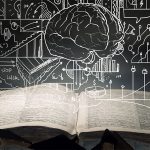Uncharted Territory
by Sarah Butler
The book had me at the table of contents: Education, Credo, Power, Relationships, Decisions, Identity, Freedom, and Success. Eight chapters full of short stories, essays, and poetry exploring the concepts our children wrestle with as they find their way to adulthood. Well, we all wrestle with them, but this series of workshops is for the kids. (Sorry, parents.)
These 6-week workshops, two offered each semester, carry part of the name of the text that enchanted me: Uncharted Territory: A High School Reader, edited by educator and writer Jim Burke and published by Norton. The pieces span centuries and continents, philosophies and points of view: an excerpt from Machiavelli’s “The Prince” and the James Madison’s Bill of Rights share a chapter with many an introvert’s hero, Susan Cain, whose book Quiet reassures many of us that staying at home with book is a valid way of being in the world, and a TED talk by Chimamanda Adichie, a Nigerian-born woman who explores the complexities of race, social status, and family in her novels and short stories.
Uncharted Territory workshops focus on the topics that our teen learners are confronted with in their own lives and in the bigger world. It’s in those years that we start to ponder where we fit into the world and how we will manage the big questions of life. It’s at this point we wonder about who we are (Identity), wrangle with the many choices that present themselves (Decisions), ponder our way of being and believing (Credo), and struggle to find our voice while sorting through the voices of others (Power).
But these workshops go beyond inward gazing and reflection. The Uncharted Territory workshops focus on the skills our children must have to manage the complexity of today’s world, where we are ever-more connected and yet ever-more divided. It’s also the world where we are ever-more bombarded with information. Our kids are reading books and blogs, watching YouTube and listening to podcasts, participating in online discussions as well as those around the dinner table. Despite the variety of media available to them, they, like us older folks, tend to drift to sources that grab them by their emotions and predilections. Unlike us older folks, they don’t often have the experience or critical reading and thinking skills to sort which podcasts, news outlets, and Twitter feeds are worthwhile and trustworthy and which are not.
Therefore critical reading and thinking skills are a big part of the Uncharted Territory experience. These are pieces written by the pros — by experts in their fields and authors, many with long lists of celebrated publications. That doesn’t mean that what each author says is perfect or even entirely accurate. Sometimes it is the march of time that makes us have to turn over an old idea and see if it still holds today. Other times it’s a matter of our own biases: We push against what we read because we’re holding tightly to one idea, making it hard to see another point of view. To be sure, there are points of view that can be quickly discarded: we don’t glorify hate, deception, inequity, or violence, but we do explore how those — have shaped our world and how they can be diminished. We read, therefore, with our eyes open and our minds ready to evaluate and analyze. In-class discussions and weekly forums, students have the chance to do those tasks with their classmates, and in their writing assignment (one each workshop, with two drafts, each given feedback by the instructor).
So we’ll spend each webinar discussing readings as they relate to the theme of the workshop (Power and Identity first semester, followed by Credo and Decisions second semester), exploring the content of the reading as well as the context it is in. Context — the setting of the piece — is an oft-overlooked element of a piece of writing. It includes the time and place in which the author is writing: An Iranian-born graphic memoirist from the 21st century has a different look at how one develops a credo, or philosophy of life, than, say, an American essayist and poet from the mid-nineteenth century. We’ll also tease out rhetorical skills and literary devices, adding to their toolbox of writing skills.
These workshops are both English classes with reading and writing assignments (and a pair of them in a semester could be considered a full English class), but they incorporate the other subjects that make up our world. We’ll discuss history, sociology, philosophy, government, psychology, and science. We’ll welcome the complexity of these subjects and wrestle with the challenging questions raised by the readings and our own reflections on those readings. And we’ll have fun along the way.
So send your teen on an exploration of the vast world of the written word and the themes that drive people to write those words. Support their journey to become better critical readers, thinkers, and writers. It’s good for them. It’s good for the world around them. (It could count towards or for an English credit.) And it’s going to be terrifically fun.
Sarah Butler is also known as Coach Cordelia at OnlineG3.com. She teaches writing at G3.




